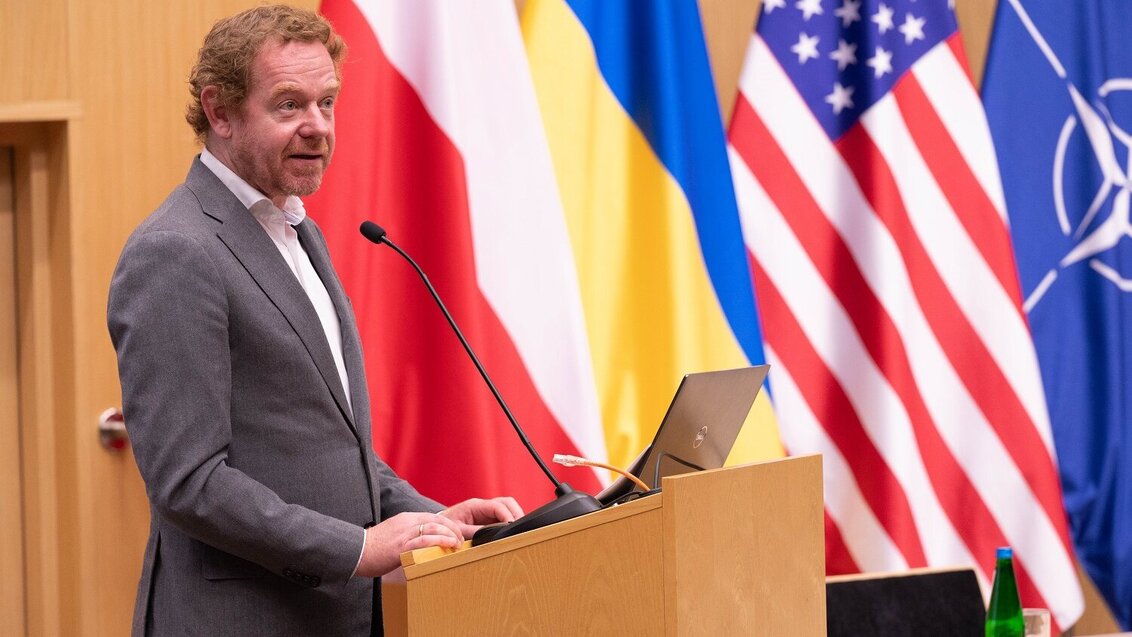
In the photo, David van Weel. Source: Devon Bistarkey, DIU
Over the last few days, the AGH University hosted the NATO-Ukraine Defence Innovators Forum, an event enhancing the cooperation between NATO and Ukraine as well as addressing the most pressing technological challenges in defence and security. It was attended by the most important representatives of the North Atlantic Alliance. With nearly 400 guests from 17 countries, the Forum has seen participants from the defence sector, interested in technologies applied in the military, and representatives of over 100 start-ups.
The event was organised by NATO, the U.S. Defence Innovation Unit (DIU), Ukrainian Defence Tech cluster BRAVE1, and the Polish Ministry of National Defence. The Forum created an opportunity for the NATO leaders to meet stakeholders from Ukraine, Poland, and several other countries, who undertake practical actions for the development of defence on a daily basis, including the development of unmanned aircraft systems and making them available. Among the attendees were also entrepreneurs, investors, start-ups, members of academia, and decision makers who could discuss issues related to the use of unmanned technologies and supporting Ukraine and also other regions of the world in this regard.
During the NATO-Ukraine Defence Innovators Forum, a plethora of complex questions concerning the use of drones in Ukraine has been answered. The discussions mainly concerned the challenges faced by Ukraine in connection with the fast development, production, and application of unmanned aircraft systems. Taking place in the AGH University walls, the event comprised discussion panels, a hackathon of unmanned systems, and a series of workshops for start-ups. It made for a perfect occasion to go over real-life operation challenges, collaboration on strengthening supply chains, and to create effective paths for the implementation of cutting-edge technologies on the areas affected by military operations.
„Gathering all the right partners in one place to address key needs is what the model of constructive collaboration is about when it comes to the current and future operational challenges,” said David van Weel, NATO Assistant Secretary General for Innovation, Hybrid and Cyber. “The Forum has brought our Ukrainian partners and Allies closer to help Ukraine today and strengthen the allied forces tomorrow,” he added.
As explained by Nataliia Kushnerska, Chief Operating Officer of BRAVE1:
„We believe that Ukraine is the central point of technological innovations in defence for the future. Ukrainian developers present solutions that change the contemporary outlook on strategies and tactics in military operations. We are deeply convinced that the Ukrainian experience together with technologies and the knowledge of our allies have the potential to constitute the technological base for safer Europe.”
During the Forum, participants attended plenary sessions and debates with representatives of, for example, a NATO unit performing tasks in the field of innovation, the Ukrainian Ministry of Defence and Digital Transformation, and the Polish Ministry of National Defence. As regards bilateral talks, they were aimed at learning about the current challenges that impact the community focused on drone technologies.
As part of the event, the guests took part in trainings and workshops organised, among others, by the Defence Innovation Accelerator for the North Atlantic (DIANA).
Hackathon – 48 hours to program drones
Alongside the Forum, there was also a hackathon involving teams from eight countries (Canada, Ukraine, the Netherlands, Norway, Poland, the UK, Estonia, the USA) developing improved automated visual guidance for unmanned aircraft systems. The solutions emerging in the competition, above all, concerned object detection and classification.
„The event favoured the important international and intraorganizational cooperation for the support of Ukraine,” said U.S. Marine Corps Colonel Glenn McCartan, DIU’s U.S. European Command lead. „Our goal is to deliver solutions within hours or days and not months or years. As a result of the hackathon, we could observe that when the Alliance unifies on one common issue and shares resources and knowledge, it may provide solutions fast and effectively.”
In the photo, Glenn McCartan. Source: Devon Bistarkey, DIU
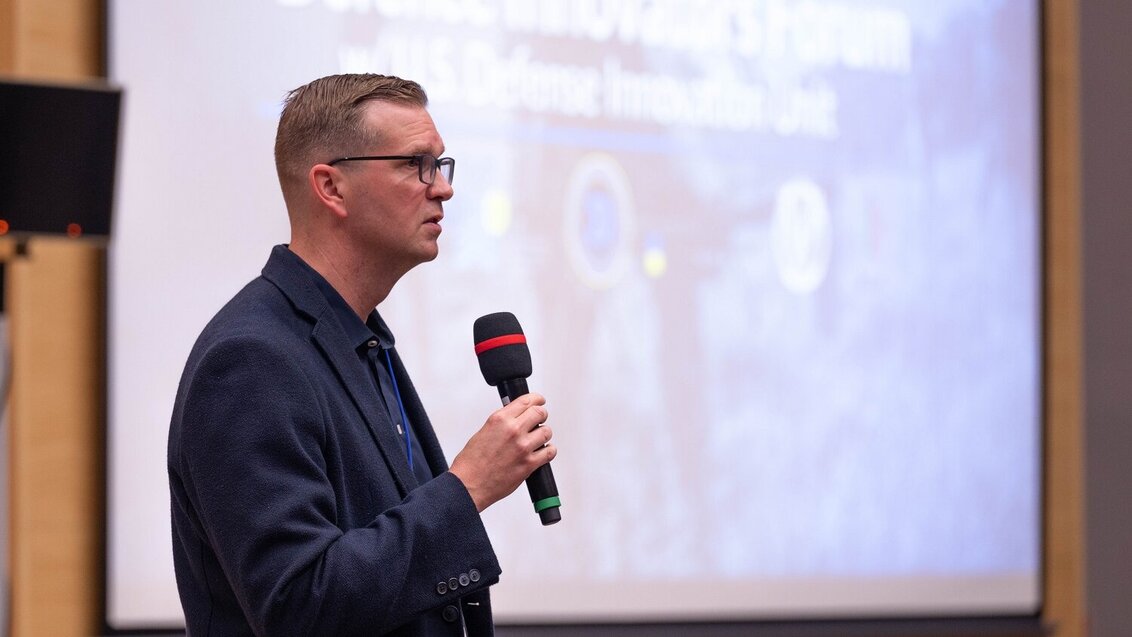
Due to generous support from the Defense Innovation Unit and the National Security Innovation Network, the hackathon winners received prizes in the total amount of USD 100,000. 13 teams were evaluated by an international jury taking into consideration the innovativeness of the solutions, among many other factors. The winner turned out to be the Sensorama Lab/KEF Robotics team, consisting of developers from Ukraine and Norway. For the solution ensuring automatic ability to identify objects with limited access to data, the team was awarded USD 50,000.
Sensorama Lab/KEF Robotics was not the sole team to develop a valuable solution. Codequest (award: USD 15,000) and AI Autonomix (award: USD 10,000) were also on the podium, and the following five teams, including the team of AGH University students, received distinctions and USD 5,000.
AGH University – NATO DIANA agreement
At the Forum, the AGH University has concluded an agreement with the Defence Innovation Accelerator for the North Atlantic (DIANA). The parties to the agreement were represented by Mr Thomas McSorley, General Counsel from NATO DIANA, and Professor Jerzy Lis, AGH University Rector.
Participating in the signing ceremony were also representatives of the Ministry of National Defence, including General Marcin Górka, Director of the Department of Innovation, Polish representative on DIANA’s Board of Directors; Izabela Albrycht, Rector’s proxy for NATO DIANA, member of NATO advisory board for new and innovative technologies in 2020–2022, and AGH University authorities.
The Krakow Technology Park, part of the Krakow DIANA Accelerator, was represented by Bartosz Józefowski, proxy for dual-use technologies.
Thomas McSorley remarked that the agreement with the AGH University is an expression of recognition for the Polish DIANA site, whose establishment was announced in March this year. In the opinion of Thomas McSorley, Krakow DIANA Accelerator has an enormous potential in terms of the implementation of solutions key to the current security challenges. Innovations emerging within the University as well as its research and laboratory base in connection with the business acceleration brought into the network by the Krakow Technology Park will surely profit for the security in the alliance and the region.
In turn, Professor Jerzy Lis, the AGH University Rector, emphasised how the agreement enhances our position not only in the international arena, but also as the one of an entity in Poland that guarantees the delivery of solutions essential for the defence sector. Owing to the concluded agreement, the Polish site of NATO defence innovation accelerator – Krakow DIANA Accelerator – proceeds to the works with enthusiasm and honour, feeling obliged to the entire alliance.
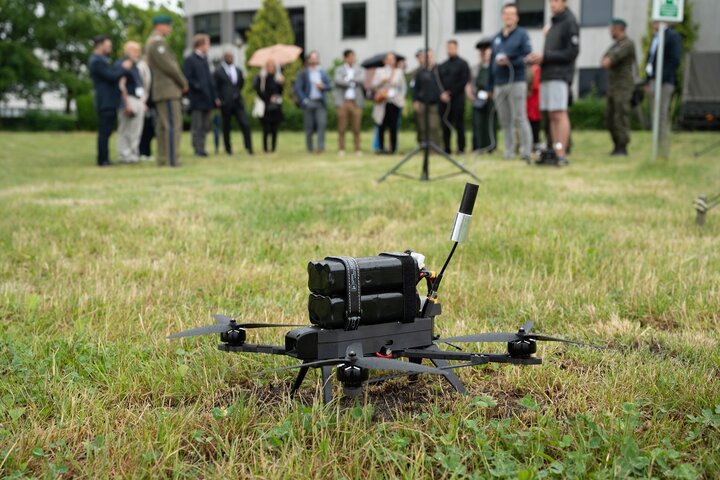
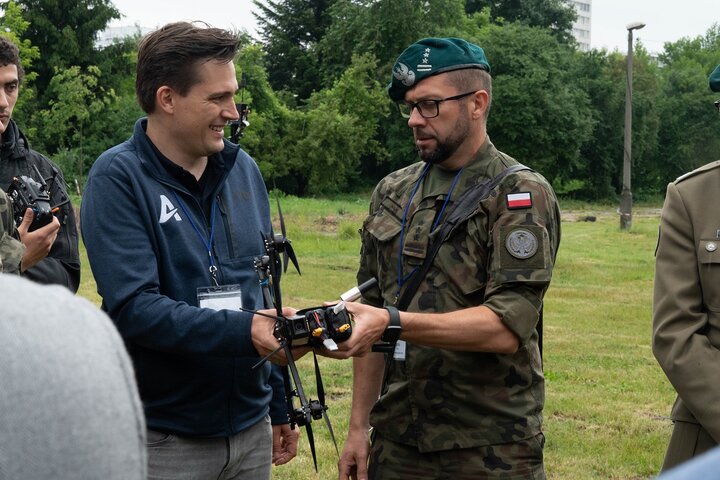
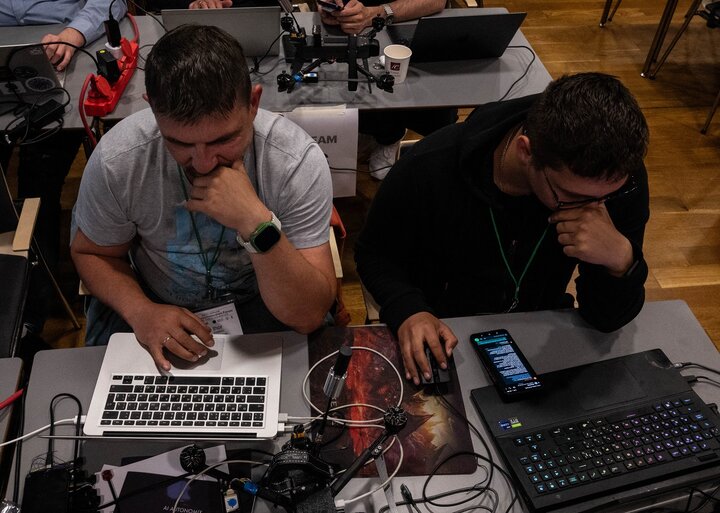
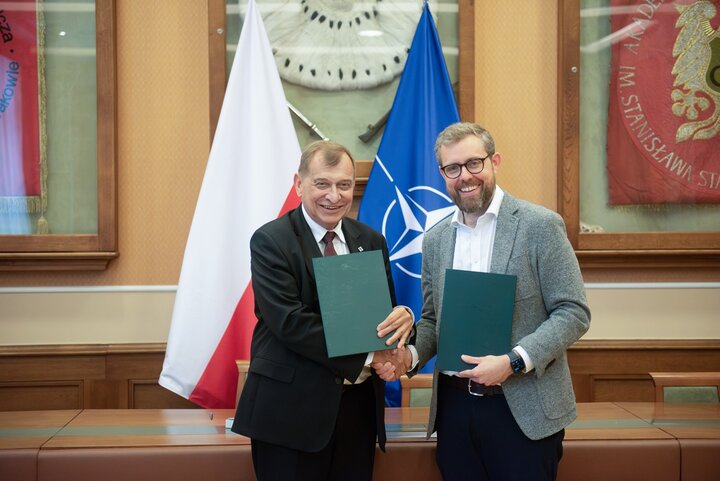
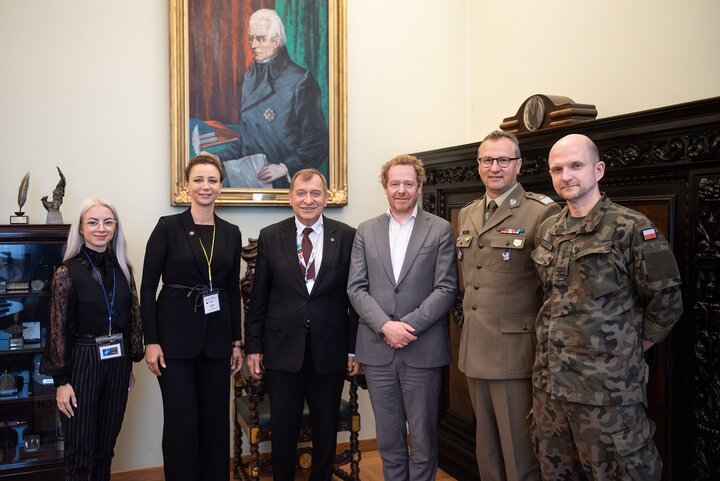
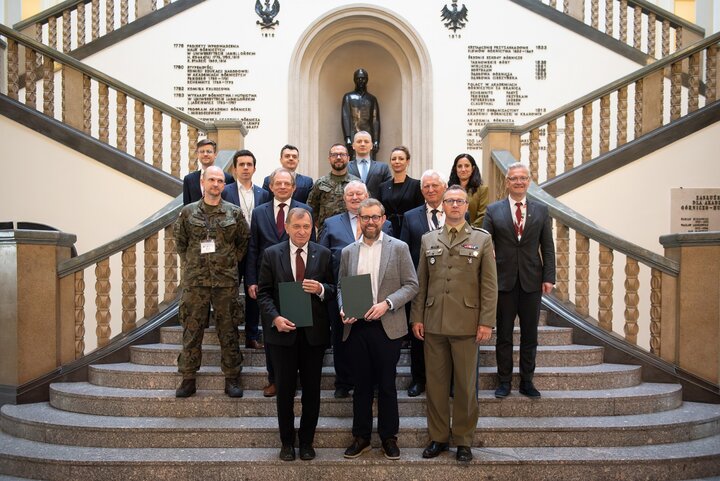
 AGH University Alumni Day 2024
AGH University Alumni Day 2024  20 years of AGH University-SIT partnership and inauguration of Alumni Association in Tokio
20 years of AGH University-SIT partnership and inauguration of Alumni Association in Tokio  Projects by AGH University Main Library with funding from Scientific Social Responsibility programme
Projects by AGH University Main Library with funding from Scientific Social Responsibility programme  Honouring those we lost this year
Honouring those we lost this year  On energy transformation and more. Distributed Energy Congress
On energy transformation and more. Distributed Energy Congress  AGH University to establish AI Factory
AGH University to establish AI Factory 

